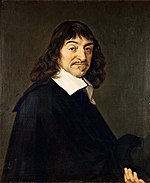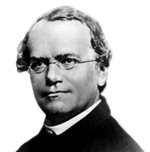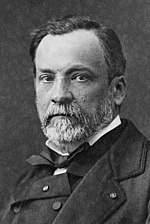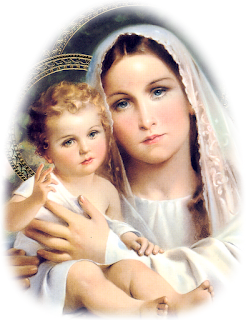Mother Church Gifts to the world: Catholic Scientists
Catholic scientists
- "Maria Gaetana Agnesi (1718–1799) - Mathematician who wrote on differential and integral calculus
- Georgius Agricola (1494–1555) - Father of Mineralogy[11]
- Albertus Magnus (c.1206-1280) - Patron saint of natural sciences
- André-Marie Ampère (1775–1836) - One of the main discovers of electromagnetism
- Amedeo Avogadro (1776–1856) - Noted for contributions to molecular theory and Avogadro's Law
- Roger Bacon (c. 1214-1294) - Franciscan friar and early advocate of the scientific method
- Daniello Bartoli (1608-1685) - Jesuit priest and one of the first to see the equatorial belts of Jupiter
- Antoine César Becquerel (1788-1878) - Pioneer in the study of electric and luminescent phenomena
- Henri Becquerel (1852–1908) - Awarded the Nobel Prize in physics for his co-discovery of radioactivity
- Claude Bernard (1813-1878) - Renowned physiologist who helped to apply scientific methodology to medicine
- Jacques Philippe Marie Binet (1786–1856) - Mathematician known for Binet's formula and his contributions to number theory
- Jean-Baptiste Biot (1774–1862) - Physicist who established the reality of meteorites and studied polarization of light
- Bernard Bolzano (1781-1848) - Priest and mathematician who made important contributions to differentiation, the concept of infinity, and the binomial theorem
- Giovanni Alfonso Borelli (1608-1679) - Often referred to as the father of modern biomechanics
- Roger Joseph Boscovich (1711–1787) - Jesuit priest and polymath known for his atomic theory and many other scientific contributions
- Thomas Bradwardine (c.1290-1349) - Archbishop and one of the discovers of the mean speed theorem
- Louis Braille (1809–1852) - Inventor of the Braille reading and writing system
- Jean Buridan (c.1300-after 1358) - French priest who developed the theory of impetus
- Alexis Carrel (1873–1944) - Awarded the Nobel Prize in Medicine for pioneering vascular suturing techniques
- John Casey (mathematician) (1820-1891) - Irish geometer known for Casey's theorem
- Giovanni Domenico Cassini (1625–1712) - First to observe four of Saturn's moons and the co-discoverer of the Great Red Spot on Jupiter
- Augustin-Louis Cauchy (1789–1857) - Mathematician who was an early pioneer in analysis
- Bonaventura Cavalieri (1598-1647) - Churchman known for his work on the problems of optics and motion, work on the precursors of infinitesimal calculus, and the introduction of logarithms to Italy. Cavalieri's principle in geometry partially anticipated integral calculus.
- Andrea Cesalpino (c.1525-1603) - Botanist who also theorized on the circulation of blood
- Jean-François Champollion (1790-1832) - Published the first translation of the Rosetta Stone
- Guy de Chauliac (c.1300-1368) - The most eminent surgeon of the Middle Ages
- Albert Claude (1899-1983) - Awarded the Nobel Prize in Medicince for his contributions to the study of cells
- Christopher Clavius (1538–1612) - Jesuit who was the main architect of the Gregorian calendar
- Mateo Realdo Colombo (1516–1559) - Discovered the pulminary circuit,[12] which paved the way for Harvey's discovery of circulation
- Carl Ferdinand Cori (1896-1984) - Shared the Nobel Prize with his wife for their discovery of the Cori cycle
- Gaspard-Gustave Coriolis (1792-1843) - Formulated laws regarding rotating systems, which later became known as the Corialis effect
- Charles-Augustin de Coulomb (1736–1806) - Physicist known for developing Coulomb's law
- Nicolaus Copernicus (1473–1543) - First person to formulate a comprehensive heliocentric cosmology
- Johann Baptist Cysat (c.1587-1657) - Jesuit priest known for his study of comets
- René Descartes (1596–1650) - Father of modern philosophy and analytic geometry
- Pierre Duhem (1861–1916) - Historian of science who made important contributions to hydrodynamics, elasticity, and thermodynamics
- Jean-Baptiste Dumas (1800–1884) - Chemist who established new values for the atomic mass of thirty elements
- Christian de Duve (1917–present) - Nobel Prize winning cytologist and biochemist
- John Eccles (neurophysiologist) (1903–1997) - Awarded the Nobel Prize in Medicine for his work on the synapse
- Stephan Endlicher (1804-1849) - Botanist who formulated a major system of plant classification
- Bartolomeo Eustachi (c.1500-1574) - One of the founders of human anatomy
- Hieronymus Fabricius (1537–1619) - Father of embryology
- Gabriele Falloppio (1523–1562) - One of the most important anatomists and physicians of the sixteenth century
- Mary Celine Fasenmyer (1906-1996) - Roman Catholic sister and mathematician, founder of Sister Celine's polynomials
- Pierre de Fermat (1601–1665) - Number theorist who contributed to the early development of calculus
- Enrico Fermi (1901–1954) - Awarded the Nobel Prize in physics for his work in induced radioactivity
- Fibonacci (c.1170-c.1250) - Popularized Hindu-Arabic numerals in Europe and discovered the Fibonacci sequence
- Hippolyte Fizeau (1819-1896) - The first person to determine experimentally the velocity of light[13]
- Léon Foucault (1819–1868) - Invented the Foucault pendulum to measure the effect of the earth's rotation
- Joseph von Fraunhofer (1787–1826) - Discovered Fraunhofer lines in the sun's spectrum
- Augustin-Jean Fresnel (1788–1827) - Made significant contributions to the theory of wave optics
- Galileo Galilei (1564–1642) - Father of modern science
- Luigi Galvani (1737–1798) - Formulated the theory of animal electricity
- Pierre Gassendi (1592–1655) - French astronomer and mathematician who published the first data on the transit of Mercury and gave the Aurora Borealis its name
- Joseph Louis Gay-Lussac (1778-1850) - Chemist known for two laws related to gases
- Paula González (1932-present) - Roman Catholic sister and professor of biology
- Francesco Maria Grimaldi (1618–1663) - Jesuit who discovered the diffraction of light
- Robert Grosseteste (c.1175-1253) - Bishop who has been called "the first man to write down a complete set of steps for performing a scientific experiment."[14]
- Johannes Gutenberg (c.1398-1468) - Inventor of the printing press
- Jean Baptiste Julien d'Omalius d'Halloy (1783–1875) - One of the pioneers of modern geology[15]
- René Just Haüy (1743–1822) - Priest, and father of crystallography
- Eduard Heis (1806-1877) - Astronomer who contributed the first true delineation of the Milky Way
- Jan Baptist van Helmont (1579-1644) - Founder of pneumatic chemistry
- Charles Hermite (1822–1901) - Mathematician who did research on number theory, quadratic forms, elliptic functions, and algebra
- John Philip Holland (1840–1914) - Developed the first submarine to be formally commissioned by the U.S. Navy
- Antoine Laurent de Jussieu (1748-1836) - The first to propose a natural classification of flowering plants
- Athanasius Kircher (c.1601-1680) - Jesuit scholar who has been called "the last Renaissance man"
- Nicolas Louis de Lacaille (1713–1762) - French astronomer noted for cataloguing stars, nebulous objects, and constellations
- René Laennec (1781–1826) - Physician who invented the stethoscope
- Joseph Louis Lagrange (1736-1813) - Mathematician and astronomer known for Lagrangian points and Lagrangian mechanics
- Jean-Baptiste Lamarck (1744-1829) - Biologist whose theories on evolution preceded those of Darwin; also divided the animal kingdom into vertebrates and invertebrates
- Karl Landsteiner (1868–1943) - Nobel Prize winner who identified and classified the human blood types
- Pierre-Simon Laplace (1749–1827) - Famed mathematician and astronomer who has been called the "Newton of France"
- Pierre André Latreille (1762-1833) - Pioneer in entomology
- Antoine Lavoisier (1743–1794) - Father of modern chemistry[16]
- Jérôme Lejeune (1926-1994) - Pediatrician and geneticist, best known for his discovery of the link of diseases to chromosome abnormalities
- Georges Lemaître (1894–1966) - Father of the Big Bang theory
- Marcello Malpighi (1628–1694) - Father of comparative physiology[17]
- Étienne-Louis Malus (1775-1812) - Discovered the polarization of light
- Guglielmo Marconi (1874–1937) - Father of long-distance radio transmission
- Edme Mariotte (c.1620-1684) - Priest who independently discovered Boyle's Law
- Pierre Louis Maupertuis (1698-1759) - Known for the Maupertuis principle and for being the first president of the Berlin Academy of Science
- Gregor Mendel (1822–1884) - Father of genetics
- Marin Mersenne (1588–1648) - Father of acoustics
- Charles W. Misner (1932-present) - American cosmologist dedicated to the study of general relativity
- Gaspard Monge (1746-1818) - Father of descriptive geometry
- Giovanni Battista Morgagni (1682–1771) - Father of modern anatomical pathology[18]
- Johannes Peter Müller (1801–1858) - Founder of modern physiology[19]
- John von Neumann (1903–1957) - Brilliant 20th century scientist who made major contributions to quantum mechanics, mathematical physics, and computer science
- Jean-Antoine Nollet (1700-1770) - Discovered the phenomenon of osmosis in natural membranes.
- William of Ockham (c.1288-c.1348) - Franciscan Friar known for Ockham's Razor
- Nicole Oresme (c.1320-1382) - 14th century bishop who theorized the daily rotation of the earth on its axis
- Barnaba Oriani (1752-1832) - Known for Oriani's theorem and for his research on Uranus
- Abraham Ortelius (1527-1598) - Created the first modern atlas and theorized on continental drift
- Blaise Pascal (1623–1662) - One of the most famous mathematicians of all time
- Louis Pasteur (1822–1895) - Father of bacteriology[20]
- Nicolas-Claude Fabri de Peiresc (1580–1637) - Discovered the Orion Nebula
- Georg von Peuerbach (1423–1461) - Has been called the father of mathematical and observational astronomy in the West[21]
- Giuseppe Piazzi (1746-1826) - Theatine priest who discovered the asteroid Ceres and did important work cataloguing stars
- Jean Picard (1620–1682) - French priest and father of modern astronomy in France[22]
- Jules Henri Poincaré (1854 – 1912) - French mathematician, theoretical physicist, engineer, and a philosopher of science, who discovered a chaotic deterministic system which laid the foundations of modern chaos theory and was one of the founders of topology
- Santiago Ramón y Cajal (1852-1934) - Awarded the Nobel Prize for his contributions to neuroscience
- René Antoine Ferchault de Réaumur (1683-1757) - Scientific polymath known especially for his study of insects
- Francesco Redi (1626-1697) - His famous experiments with maggots were a major step in overturning the idea of spontaneous generation
- Henri Victor Regnault (1810-1878) - Chemist with two laws governing the specific heat of gases named after him[23]
- Giovanni Battista Riccioli (1598–1671) - Jesuit priest and the first person to measure the acceleration due to gravity of falling bodies
- Wilhelm Roentgen (1845-1923) - Discovered X-rays.
- Theodor Schwann (1810–1882) - Founder of the theory of the cellular structure of animal organisms
- Angelo Secchi (1818-1878) - Jesuit priest who developed the first system of stellar classification
- Ignaz Semmelweis (1818-1865) - Early pioneer of antiseptic procedures and the discoverer of the cause of puerperal fever
- Lazzaro Spallanzani (1729-1799) - Priest and biologist who laid the groundwork for Pasteur's discoveries
- Nicolas Steno (1638–1686) - Bishop, and father of stratigraphy
- Francesco Lana de Terzi (1631-1687) - Jesuit priest who has been called the father of aeronautics
- Louis Jacques Thénard (1777–1857) - Discovered hydrogen peroxide
- Theodoric of Freiberg (c.1250-c.1310) - Gave the first geometrical analysis of the rainbow
- Evangelista Torricelli (1608–1647) - Inventor of the barometer
- Paolo dal Pozzo Toscanelli (1397–1482) - One of the most distinguished scientists of the fifteenth century
- Richard Towneley (1629-1707) - Mathematician and astronomer whose investigations and correspondence contributed to the formulation of Boyle's Law
- Louis René Tulasne (1815-1885) - Noted biologist with several genuses and species of fungi named after him
- Louis Nicolas Vauquelin (1763–1829) - Discovered the chemical element Beryllium
- Pierre Vernier (1580-1637) - Mathematician who invented the Vernier scale
- Urbain Le Verrier (1811–1877) - Mathematician who predicted the discovery of Neptune
- Andreas Vesalius (1514–1564) - Father of modern human anatomy
- François Viète (1540–1603) - Father of Modern Algebra[24]
- Leonardo da Vinci (1452–1519) - Renaissance anatomist, scientist, mathematician, and painter
- Vincenzo Viviani (1622-1703) - Mathematician known for Viviani's theorem and Viviani's curve as well as his experiments to determine the speed of sound
- Alessandro Volta (1745–1827) - Physicist known for the invention of the battery
- Wilhelm Heinrich Waagen (1841–1900) - Geologist and paleontologist
- Karl Weierstrass (1815-1897) - Often called the Father of Modern Analysis[25]
- E. T. Whittaker (1873–1956) - English mathematician who made contributions to applied mathematics and mathematical physics
- Johann Joachim Winckelmann (1717–1768) - One of the founders of scientific archeology"
Source: Wikipedia











Comments
Post a Comment